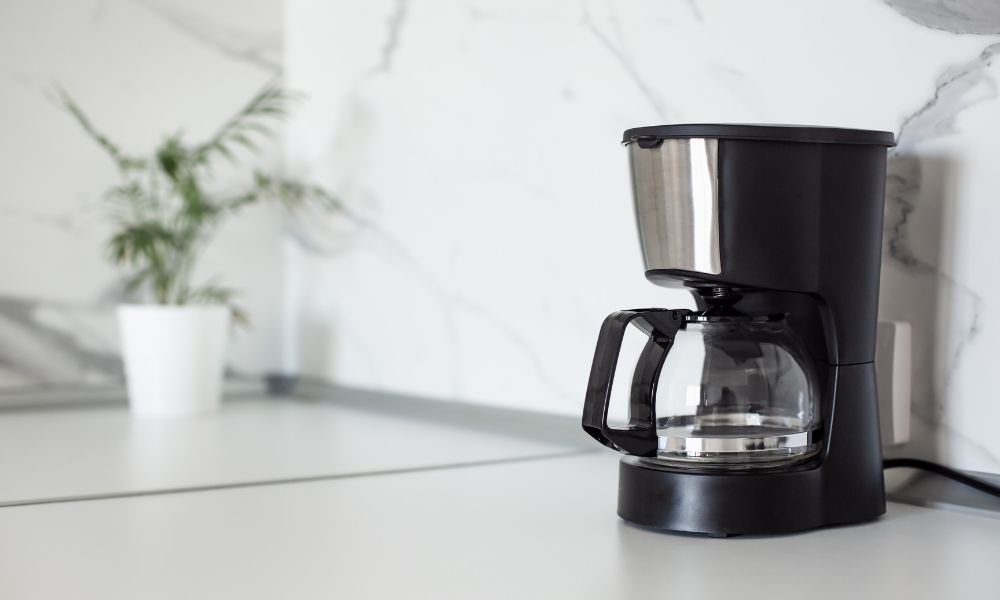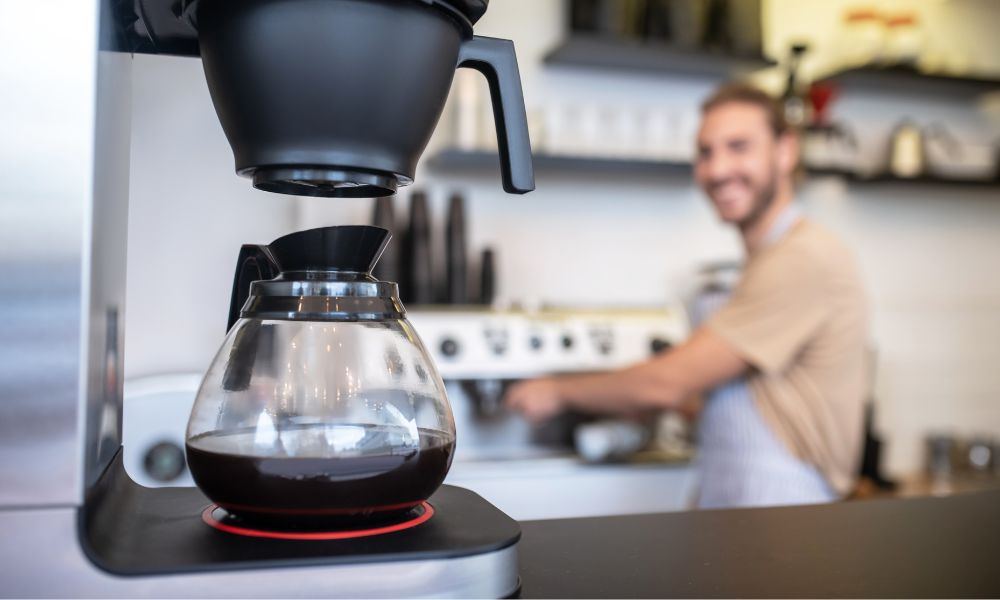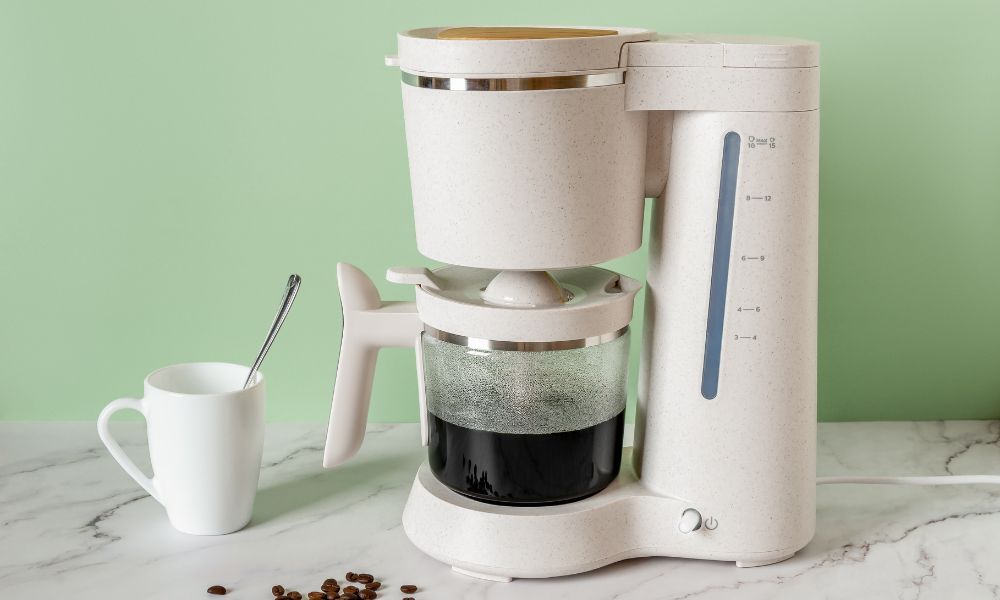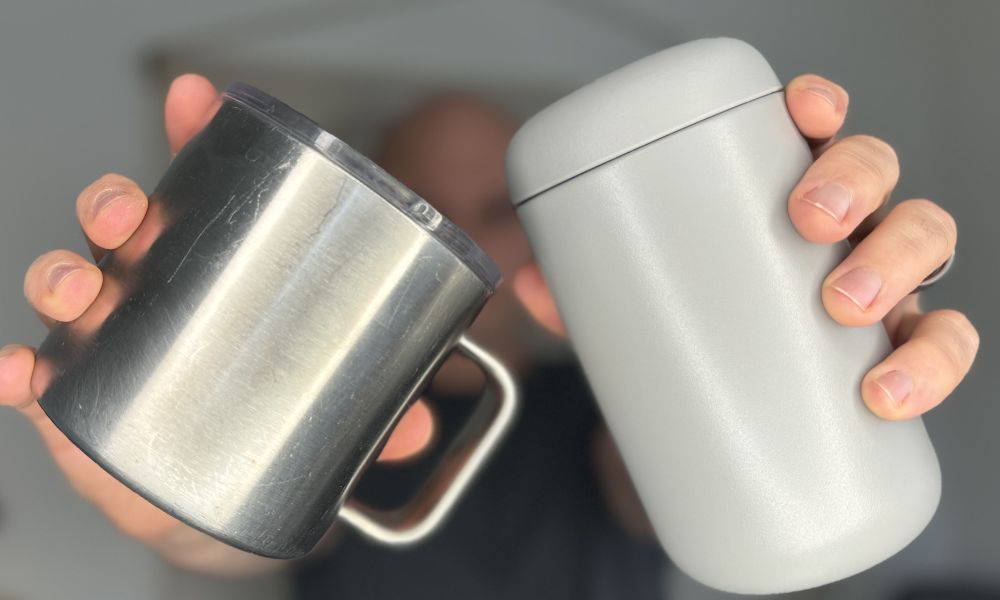You are making a cup of coffee; you have done everything right, and once you finally have your cup of joe, it has grounds in it!
What gives? Now, you have to make a whole different cup or even pot of coffee because the grounds have found their way into the brewed coffee instead of staying within the bounds of your filter or coffee maker.
So why do coffee grounds get in coffee? Coffee grounds get into coffee mainly due to a failed filter, whether it be a hole in the filter or the filter has somehow bent over when the water started to land on it. This causes the water to bring the grounds over the barrier of the filter and into your brew.
Let’s dig in to give you some ideas as to why you might have just ruined your brew this morning!
Table of Contents
1. The filter is bent over during the brew.

This is by far the most common issue I have found. Back when I was mainly using my automatic coffee maker more (instead of my Aeropress Go that the brand gifted me a long time ago), I would constantly have either my coffee grounds in my cup or it would be significantly watered down, and more usually both.
The problem resulted from my filter bending over when sliding the filter housing into the coffee maker.
It would bend over slightly, and when the coffee maker would push water onto it, it would then saturate it, making it flat over the top of the grounds. This means water wasn’t brewing the coffee, and it also allowed the coffee ground to find its way around the filter and into the brew.
How to fix this? It’s Easy! You should always dampen your filter before putting it into your coffee maker. This helps both with the taste and makes it form and adhere slightly to the walls of the filter housing so it doesn’t bend over.
2. The filter has a hole in it.
The following and more obvious reason you may have grounds in your coffee is that your filter has a hole in it.
Every time you make a carafe or cup of coffee, you want to ensure that your filter doesn’t have any holes in it, as this will be the apparent culprit if you find grounds in the coffee.
While this isn’t crazy common, it can still be an issue. That extra second to inspect may mean you don’t have to spend a few minutes and some waste to make another cup.
3. Too small of a filter
Every automatic coffee maker has a specific size you need to buy for it.
Mine, for example, take a #4 coffee filter. However, yours likely may take something else. Do a quick search online for your model of coffee maker, and see what size you need.
If you have too small of a filter, when the brew cycle takes place, the grounds will quickly overpower the filter and flow over the top of it and into your mug.
4. Too large of a filter

Returning to our discussion of coffee filters being bent over and cause grounds to get past them. Having a too large coffee filter will cause this time and time again.
Make sure you have the right filter for you! Larger coffee filters will bend over during operation much faster than the correct filter, or even smaller.
5. Too many coffee grounds
Another easy way to mix your grounds and brew into your coffee mug is to have just too many coffee grounds present. This can cause the water to back up and not find its way through the grounds quickly, overflowing around your filter and into the coffee.
Once again, messing with your delicious cup of coffee. One great way to solve this is by getting a scale and weighing your coffee every time after you figure out the right amount!
6. Damage to the coffee maker
While it is rare, there may be damage to your coffee maker itself. An automatic coffee maker isn’t prone to this issue, for the issue of grounds showing up in your coffee maker.
However, when you look at coffee makers like French Press or an emersion brew device, you will generally have a plunger separating the grounds from the brew.
If something is bent or damaged, it will no longer separate correctly, leaving you with some coffee grounds in your cup. Do a quick check of whatever coffee maker you are using to ensure no cracks, holes, or damage are present.
7. Using the coffee maker wrong
The final reason you may have grounds in your coffee is that you may be using the coffee maker wrong! Do a quick check to ensure all the steps needed for your coffee maker are followed.
While automatic coffee makers can be simple, if you are running into this issue with a manual coffee maker. It is best to look around at some tutorials to see what you are doing wrong. You could also always read through some of these articles on the site.
Another great way to fix many of these problems is to get yourself a metal filter. These fail less, are more durable, and don’t ever have to worry about repurchasing filters.



